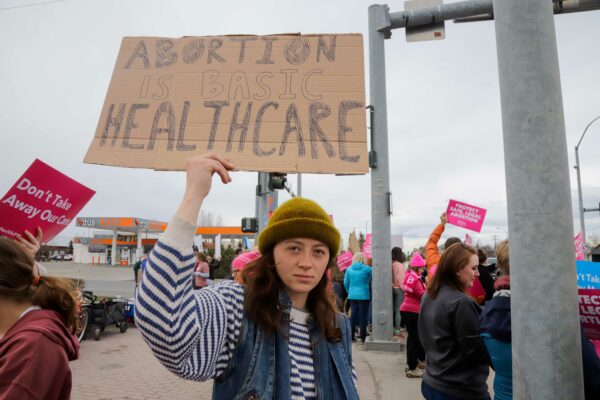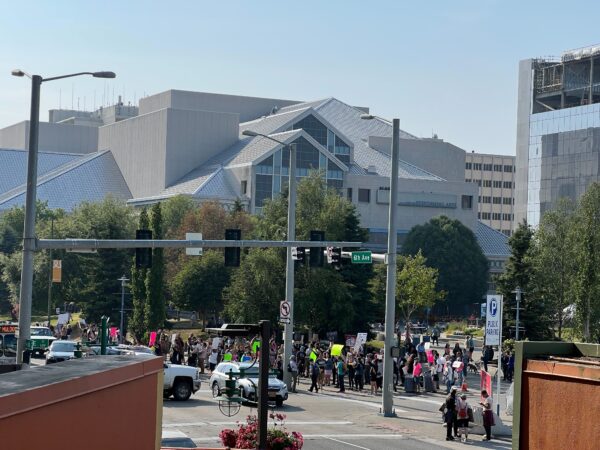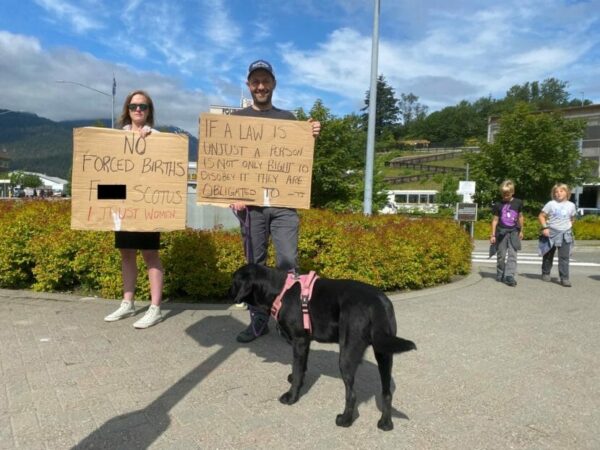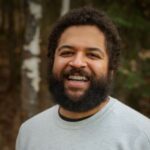
The U.S. Supreme Court on Friday overturned the landmark Roe v. Wade case, ruling that there is no constitutional right to an abortion
The reversal of more than 50 years of legal precedent sparked protests and rallies across the nation as people grappled with what the overturning of Roe means for abortion access where they live. In nearly half of states, the decision was expected to lead to the banning of abortions or severe restrictions on access to them.
As for Alaska, the state has a strong right to privacy in its constitution and the ability to get a safe and legal abortion continues, said Rose O’Hara-Jolley, state director with Planned Parenthood Alliance Advocates Alaska.
“So the overturning of the federal protection of that right to privacy applying to abortion, does not immediately impact Alaska,” O’Hara-Jolley said. “Our state Supreme Court has ruled multiple times that our state constitutional right to privacy covers that right to an abortion.”
RELATED: Why overturning Roe wouldn’t end abortion rights in Alaska
Still, O’Hara-Jolley is preparing for a fight. Even before Roe was overturned, some Alaska lawmakers had repeatedly tried to limit abortion access in the state.
“We know that they’re going to try to come against that because they already do,” O’Hara-Jolley said. “In their last session was a constitutional amendment to remove abortion. Also, HB 206 was one of the most extreme anti-abortion bills in the country, and it was in the Alaska state House.”
The sponsor of both bills O’Hara-Jolley referred to was celebrating Friday’s decision.
“Roe vs. Wade has been a scourge on our nation for nearly 60 years,” said a statement from Wasilla Rep. Christopher Kurka, who’s also a Republican running for governor. “It was a decision that was both immoral and unconstitutional and I am overjoyed that it has been overturned today.”
Kurka then called for Gov. Mike Dunleavy to call a special legislative session to work on anti-abortion legislation.
Dunleavy issued a statement after the ruling affirming that he is pro-life. He said he will introduce a resolution during the next legislative session for a constitutional amendment that would determine whether abortion is a constitutionally protected right.
“I have always had faith in the people of Alaska to make the right decision when it comes to our constitution and protecting our fundamental rights and this issue is no different,” said Dunleavy. ”My position on this issue has been made clear. Alaskans should have the opportunity to make their position clear as well.”
Two other candidates for governor indicated their support for maintaining Alaska’s existing rights to abortion.
“While we recognize the Dobbs decision is extremely controversial, we take seriously the oath to uphold our Alaska constitution,” Independent candidate and former Gov. Bill Walker said in a statement. “That means, under the Walker Drygas Administration, women will continue to make their own choices regarding their reproductive healthcare.”
Democratic candidate Les Gara was a little more forceful.
“I’ll screen future judicial candidates to see if they’ll follow prior Alaska caselaw protecting choice, I’ll veto anti-choice legislation, and I’ll never appoint an Attorney General who’ll try to roll back a woman’s right to choose,” Gara said in a statement.
The Gara and Walker campaigns also opposed holding a new constitutional convention, an item on this year’s ballot that anti-abortion advocates have supported as a potential avenue to ban abortions in the state.
RELATED: Why some anti-abortion Alaskans say this is the year to vote yes on a constitutional convention
Kurka has expressed support for the constitutional convention, while in a recent radio interview on KRBD in Ketchikan, Dunleavy told listeners that he’d leave it to voters.
“If they vote for it, I think the people of Alaska — once again I have a lot of faith in them — that there will be some positive outcomes,” Dunleavy said. “If they decide they don’t want it, I’d have to accept that they’re content with the constitutional arrangement we have now.”
Meanwhile, Alaskans were planning protests and marches in reaction to the ruling after it hit Friday morning.


In Juneau, resident Emily Chapel took to a corner downtown around 9 a.m. to wave signs with a friend in protest.
“I just can’t believe that my daughter has fewer rights today than I did and her age,” Chapel said. “I’m really upset. Guns have more rights than I do at this point, as a woman in the United States.”
KRBD’s Raegan Miller and KTOO’s Claire Stremple contributed to this report.
Wesley Early covers Anchorage life and city politics for Alaska Public Media. Reach him at wearly@alaskapublic.org and follow him on X at @wesley_early. Read more about Wesley here.





